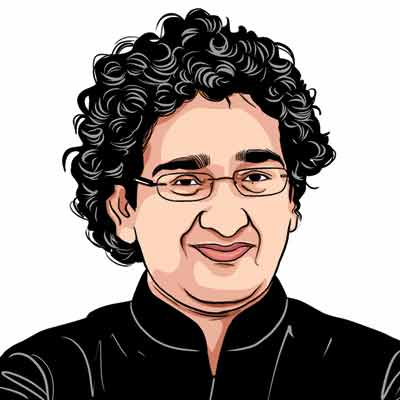Opinion Which tale to tell?
When Republicans describe tax cuts for the rich as tax relief,says renowned cognitive scientist George Lakoff,the listener imagines a hapless victim suffering pain and understands the need to relieve him.
When Republicans describe tax cuts for the rich as tax relief,says renowned cognitive scientist George Lakoff,the listener imagines a hapless victim suffering pain and understands the need to relieve him. A loaded phrase makes the listener sympathetic to tax cuts even before an argument has been made. Lakoffs larger point is that people dont buy individual facts,they buy stories,or frames through which they view the world. Convincing people requires using words and images that frames your agenda correctly,that tells the story the right way.
In convincing Indias sceptical public of the need to decriminalise homosexuality,the story thats being told to them is one of freedom,the freedom to choose. As 18th century liberal philosopher Jeremy Bentham argued in an influential essay,Offences against ones self: it is evident that [homosexuality produces no pain in anyone. Then why ban what adults choose to do in the privacy of their bedrooms? Many gay rights activists and opinion makers have stressed this argument. And visuals of gay pride parades showing camp celebrations by masked marchers in feathered skirts,conjure up this very frame.
The problem with this freedom frame is that while it appeals to upper-class Indian liberals,it also accommodates some of the basest prejudices against homosexuality. Some of the stereotypes against gays: that it is a western fad or as former Bihar Chief Minister Lalu Yadav put it: are obscene things which our country and culture do not permit, work within this narrative. For,opponents of gay rights argue,if gay sex is simply a matter of choice,then surely it is curable. After all,we dont have the freedom to smoke cocaine or commit incest (even though,strictly speaking,these choices dont harm anyone else). The class composition of gay rights activism in India also fuels suspicions that these are westernised rich-boy perversions (never mind that only the well-heeled can speak out against such prevelant social stigma). Benthams own essay in defence of homosexuality,written in 1785,could be published only in 1931,for fear of inciting social wrath. Even legally,Indias Constitution does not unequivocally protect our right to make harm-free choices. The list of freedoms we enjoy (enumerated within Article 19(1)) are subject to decency or morality,even when they injure no one.
The Delhi High Court verdict on section 377 tells a different story,operates within a different frame. Its not about freedom,its about equality. Since scientific data conclusively proves that sexual orientation is determined at an early age and is unchangeable,being gay is like being born a woman,a Dalit or a Muslim. Just as there can be no discrimination on the basis of race,caste or religion,those with alternate sexual orientations cannot be discriminated against. This is what the high court meant when it said that the constitutionally protected identity of sex in articles 15 and 16,includes sexual orientation.
Its not an intuitive point to grasp,but the equality frame is far more effective than the freedom frame. As George Lakoff says of Americans: while a lot of Americans dont approve of gay sex,that doesnt mean they want to discriminate against gay people. The same goes for the Indian public. While there can be limits to freedom,the right to equal dignity cannot be ever subject to decency or morality. In fact,Indians do accord some semblance of dignity to certain sexual minorities. Transgenders (Hijras) might be treated rottenly by the Indian system (and harassed by cops under section 377). But public opinion is more attuned to their travails,and in states such as Tamil Nadu,Hijras even enjoy welfare benefits. This is because Hijras unlike gays who are seen as choosers of debauchery are viewed as victims of fate.
Unfortunately,the equality for sexuality minorities argument,so clearly propounded by the court,has not been made strongly enough in the public arena. Which is why backward caste parties like the Rashtriya Janata Dal and the Samajwadi party,as well as some religious minority groups,have opposed the judgment. This is ironic,since the equality frame is likely to resonate so much more with them.
The most iconic image of equality and dignity in India is Uttar Pradesh Chief Minister Mayawati,a Dalit and a woman. What if,and its a big if,Mayawati publicly stated that gays are sexuality minorities who need to be protected from social discrimination in much the same manner as Dalits. That is pretty much what the Delhi High Court has said,and that is whats at stake in the Supreme Court right now. Thats the frame that needs to be frozen,thats the brand that needs to be built. And what better brand-ambassador than Behenji?
vinay.sitapati@expressindia.com


